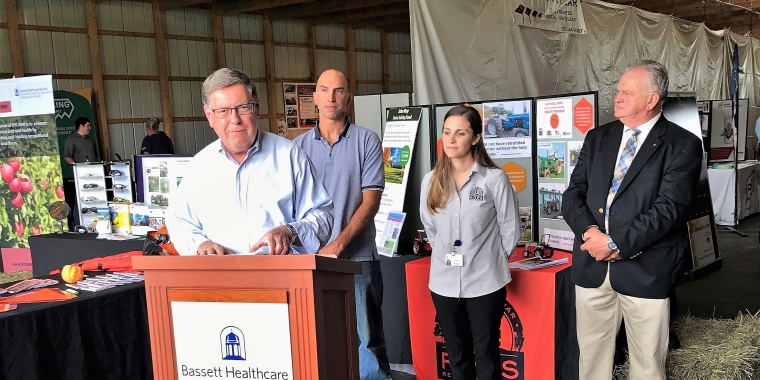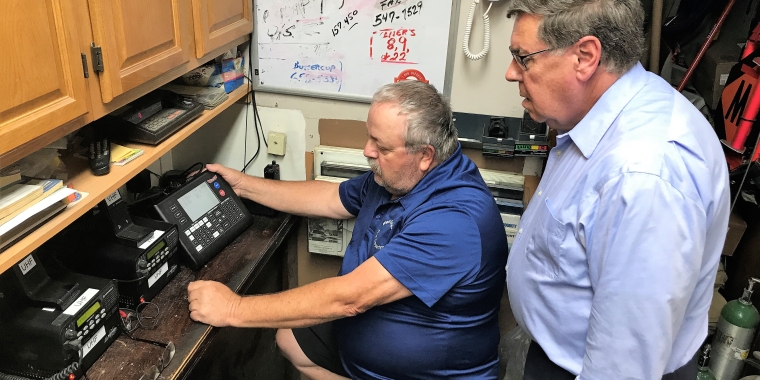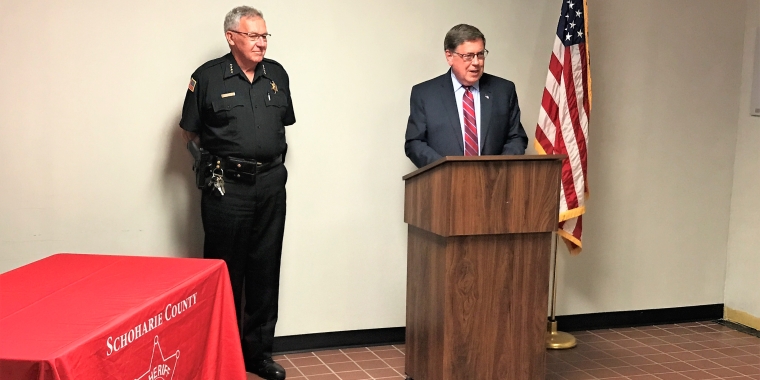
Down Syndrome Awareness Month
James L. Seward
October 15, 2009
October is National Down Syndrome Awareness Month and after my urging the governor to recognize this very special event, he has officially designated this Down Syndrome Awareness Month in New York state as well.
In calling on the governor to make the official proclamation, I stressed the opportunity to increase awareness of Down syndrome and to promote inclusion and acceptance of individuals born with the condition. I am pleased he accepted the opportunity and issued the statewide proclamation.
In 1991, the first National Down Syndrome Awareness month was established through an executive order by President George H.W. Bush. That proclamation states, “…we know that many individuals with Down syndrome are both determined and able to lead active, productive lives. Thanks to early intervention and mainstreaming, as well as improved treatment of physical health problems related to Down syndrome, thousands are doing just that.”
According to the National Down Syndrome Society, Down syndrome is the most commonly occurring chromosomal condition. One in every 733 babies is born with Down syndrome and there are more than 400,000 people living with the condition in the United States. A few of the common physical traits of Down syndrome are low muscle tone, small stature, an upward slant to the eyes and a single deep crease across the center of the palm. Every person with Down syndrome may possess these characteristics to different degrees or not at all.
People with Down syndrome have an increased risk for certain medical conditions such as congenital heart defects, respiratory and hearing problems, Alzheimer’s disease, childhood leukemia and thyroid conditions. Many of these conditions are now treatable so most people with Down syndrome lead healthy lives. In 1983 the life expectancy for those with Down syndrome was 25 years, now it is 60.
People with Down syndrome experience cognitive delays, but the effect is usually mild to moderate and is not indicative of the many strengths and talents that each individual possesses. Children with Down syndrome learn to sit, walk, talk, play, and do most other activities; only somewhat later than their peers without Down syndrome.
Quality educational programs, a stimulating home environment, good health care, and positive support from family, friends and the community enable people with Down syndrome to develop their full potential and lead fulfilling lives. People with Down syndrome attend school and work, and participate in decisions that concern them, and contribute to society in many wonderful ways.
We are fortunate to have the world’s only known residential community devoted to Down syndrome located in our backyard. Pathfinder Village, a private, non-profit community in Edmeston, is made up of several homes and a school, with caring educators and staff providing high quality services in health, safety, and residential living.
Students enrolled at Pathfinder attend school year round focusing on a host of important skills including:
• Academics;
• Speech and communication skills;
• Adapted physical education;
• Art/music classes, drama and creative arts programs;
• Community-based learning, including field trips to area attractions ;
• Computer instruction;
• Employment skills, including internships at local businesses
and on-site vocational training;
• Activities of daily living;
• Personal living skills;
• Social competency.
Once Pathfinder Village residents reach the age of 21 and have completed their formal education, it is time for them to advance to adult responsibilities. Adult program placement for each person is based on the individual's interests and abilities, and trained counselors and social workers assist in this important transition.
Many of the village's adult residents work in community employment or volunteer positions, which has become the greatest source of growth, pride, and independence. Other residents attend continuing education/vocational programs, which allow them to set and achieve goals, move toward independence, and interact with others.
I am proud to have worked with Pathfinder Village and watch the community grow. I am prouder still of the great strides those with Down syndrome have made and look forward to continued medical breakthroughs on their behalf.
Share this Article or Press Release
Newsroom
Go to NewsroomSeward Delivers Funding for Hartwick Water System
October 15, 2018

Seward Drives State Funding to Lifesaving Farm Safety Program
September 12, 2018


